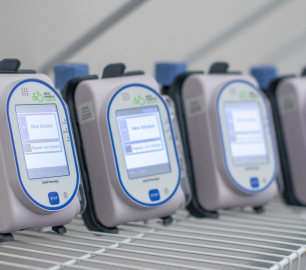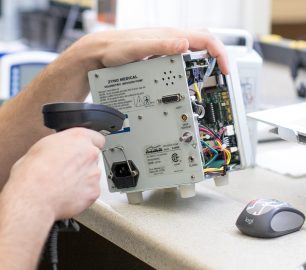“I’ve been bitten, kicked, punched, pushed, pinched, shoved, scratched, and spat upon,” said Lisa Tenney, RN, of the Maryland Emergency Nurses Association. “I have been bullied and called very ugly names. I’ve had my life, the life of my unborn child, and of my other family members threatened, requiring a security escort to my car.”
Though you do your best to provide quality care for your patients, provider stories like these are not uncommon. It’s one of health care’s most frustrating epidemics: workplace violence.
Workplace Violence in Health Care is Rampant
As a health care provider, it might not surprise you that health care has, of all industries, the highest rates of workplace violence, according to the Occupational Safety and Health Administration. The incident rate of serious workplace violence is four times more common in health care than in private industry. The American College of Emergency Physicians in August found that nearly half of emergency physician respondents reported having been physically assaulted with more than 60% of those assaults happening within the past year.
To combat statistics like those, the Cleveland Clinic, for example, has had to install metal detectors and search patients that enter, even the ones on stretchers. Officers have had to confiscate thousands of weapons like knives, pepper spray, and guns each year.
“There is a very fundamental problem in U.S. health care that very few people speak about,” Cleveland Clinic CEO Tom Mihaljevic said, “and that’s the violence against health care workers. Daily — literally, daily — we are exposed to violent outbursts.”
Workers in Home Health Care Are Uniquely At Risk
If structured organizations like hospitals are in such a state, home health care pose even more unique risks because the home environment is much less controlled than other health care settings. When practitioners are visiting a home, they are often alone and in an area that they might be unfamiliar with. These home health care providers often work without partners or backup—in highly volatile and unpredictable situations, or in private homes that may not have security, or in the middle of the night. When they’re focusing on their patients, which elevates the potential risk.
Study results vary in the range of violence severity and pervasiveness, but an International Association for Healthcare Security and Safety Foundation survey found at least 5% and perhaps as many as 61% of home care nurses have experienced some form of workplace violence. Approximately 18% to 59% reported verbal aggression, while around 30% of home care workers reported being sexually harassed.
The CDC has some advice on how to prevent violence on the job, for both employers and employees. In short, CDC suggests that employers should establish a zero-tolerance policy for all incidents of violence, be diligent about investigating reports of violence, collaborate with police to identify dangerous neighborhoods, and train their workers on recognizing and preventing workplace violence. Employees, on the other hand, should report all violent incidents to their employer, trust their judgment and not be afraid of calling 911, and work with an escort in high-crime areas.
Legislation is Still Getting There
Hospitals and other groups are working to ameliorate the situation but the culture of silence in health care needs to change. Thankfully, laws across the States are being drawn up to help these workers. In California, for example, the nurses’ labor union pushed for a law that would give OSHA more authority to monitor hospital safety. The union is backing a national effort for workers beyond California.
The main shift is to hold the employers more responsible for violent incidents. In essence, the laws mandate the reporting of incidents and transparency.
The Workplace Violence Prevention for Health Care and Social Service Workers Act is one such law. The Act was introduced in Congress last fall and not only requires hospitals to implement systems that prevent violence but also threatens to fine these institutes should they fail to report incidents to OSHA.
Hopefully, when the administrators are incentivized to report and prevent violent acts under their domain, their employees will also feel more comfortable reporting incidents, and health care can become a safer place for both patients and workers.
About Right Way Medical
Right Way Medical provides supply, logistic, technology, biomedical and financing solutions to alternate site, long-term care and specialty pharmacy healthcare providers through an innovative suite of products and services combined with the highest level of customer service. Founded in 2014, Right Way Medical has become a trusted name in the infusion industry, and focuses everyday to continue to earn that trust and provide its customers with the ideal experience in acquiring healthcare related products and service.
Contact us today to talk about how you can get started with our service and financing options.



